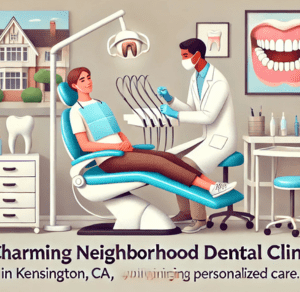Adjusting to dentures can feel daunting, but it’s often smoother than expected. Three key points can help the transition. First, understanding the process eases concerns. Next, proper care ensures comfort and longevity. Finally, seeking guidance from a knowledgeable professional, like those at Greenwich general dentistry, provides reassurance.
Understanding the Process
The journey with dentures starts with a clear understanding of what to expect. Dentures are custom-made replacements for missing teeth and can be removed and put back into the mouth. While they take some getting used to, today’s dentures are natural-looking and more comfortable than ever.
The initial stage involves a few visits to the dentist. Your dentist will make impressions and models of your jaw to create the perfect fit. Once ready, adjustments ensure a comfortable fit. This process might seem lengthy, but it ensures your dentures serve you well.
According to the National Institute of Dental and Craniofacial Research, understanding each step reduces anxiety and helps in adapting quicker.
Proper Care for Comfort and Longevity
Caring for dentures is key to comfort and durability. With proper care, dentures last for many years. Here are three essential tips:
- Daily Cleaning: Clean your dentures daily with a soft brush and mild soap. Avoid using toothpaste, as it can be abrasive.
- Handle with Care: Dentures are delicate. Handle them over a basin filled with water or a soft towel to prevent damage if they fall.
- Soak Overnight: Keep your dentures moist by soaking them in water or a mild denture-soaking solution overnight.
Proper care not only keeps them looking good but also prevents oral issues. The Centers for Disease Control and Prevention offers additional tips on maintaining oral health with dentures.
Seeking Professional Guidance
Professional support is vital during the adaptation phase. Regular dental visits ensure that dentures fit well and any discomfort is addressed. Dentists can provide valuable advice on adapting to new dentures and guide on dietary changes.
Many people worry about speaking and eating with new dentures. A dentist can provide exercises to help with speech. Gradually introducing firmer foods can build confidence in eating. Professional advice makes a significant difference in settling into the new normal.
Comparison: Dentures vs. Natural Teeth
Understanding how dentures differ from natural teeth helps set realistic expectations. Here’s a simple comparison:
| Aspect | Dentures | Natural Teeth |
| Appearance | Custom-designed to look natural | Natural appearance |
| Function | Chewing may require adjustment | Natural chewing function |
| Care | Requires daily cleaning and soaking | Brushing and flossing |
| Durability | Can last many years with care | Can last a lifetime with good hygiene |
Conclusion
Adapting to dentures involves understanding, care, and professional support. With these three elements, the transition can become a positive experience. Patience and practice lead to confidence in using dentures for daily activities.
Remember, adjusting to dentures is a journey. Each step taken brings you closer to a comfortable and confident smile.






